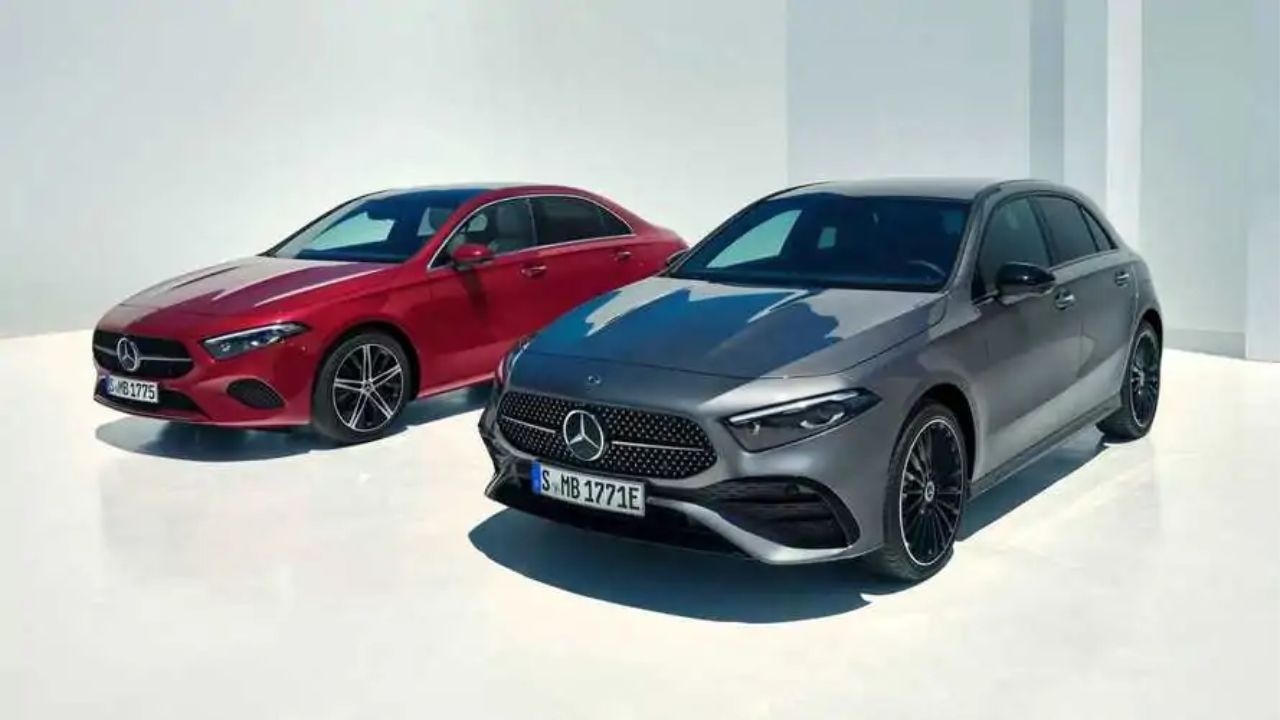Ah, the allure of electric vehicles – a future promised by many automakers, but one that’s proving tougher to achieve than expected. Mercedes, the German luxury powerhouse, has been forced to confront this harsh reality head-on.
OPTIMISTIC AMBITIONS
Once upon a time, Mercedes boldly claimed that hybrids and EVs would account for a whopping 50 percent of its sales by 2025. But as the calendar pages turn, that dream seems increasingly distant. The new, more modest goal? A mere 21 percent of total shipments by 2024.
HUMBLE A-CLASS RISES AGAIN
In a move that defies their initial plans, Mercedes has decided to extend the life cycle of its most affordable gasoline-powered model, the A-Class. Originally slated for retirement in 2024, this compact hatchback will now grace showrooms well into 2026, serving as a tangible reminder that the era of internal combustion engines (ICEs) is far from over.
PRICE PARITY
The crux of the matter lies in the stark price gap between traditional ICE cars and their electric counterparts. As Mercedes CEO Ola Kallenius candidly admitted, price parity between the two is still “many years away.” Customers, it seems, are acutely aware of this disparity, making the transition to EVs a more gradual process than initially anticipated.
COMPACT CARS
But Mercedes isn’t abandoning electrification altogether. The company’s upcoming family of compact cars, built on the newly developed MMA platform, will offer a balanced mix of gasoline engines and fully electric drivetrains. It’s a pragmatic approach that acknowledges the diverse needs and preferences of their customer base.
FLEXIBLE FUTURE
Looking ahead, Mercedes envisions plug-in hybrids and EVs representing up to 50 percent of total shipments by 2030. However, this projection is a far cry from their earlier ambitions of going fully electric in certain markets by the end of the decade. The Stuttgart-based automaker now recognizes that “customers and market conditions will set the pace of the transformation,” allowing for a more flexible and responsive strategy.
ENDURING ICE AGE
Even as the European Union contemplates a sales ban on new cars with emissions by 2035, voices within the industry are suggesting that this deadline may be delayed. If that happens, the reign of internal combustion engines could be extended even further, allowing Mercedes to continue catering to those who prefer the familiar roar of gasoline-powered performance.
So, while the electric revolution marches on, Mercedes is wisely hedging its bets, embracing a future that blends cutting-edge technology with time-honored traditions. After all, in the world of luxury automobiles, adapting to customer demands is paramount – and Mercedes seems poised to do just that.


